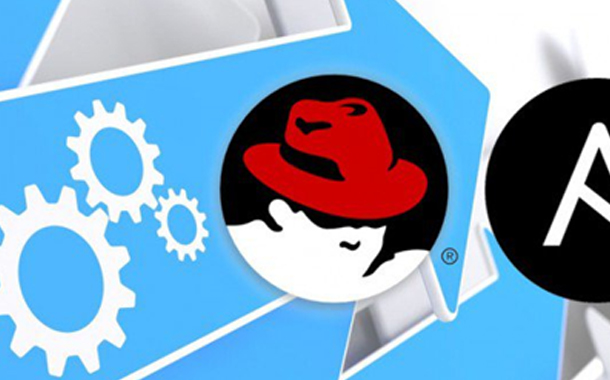Red Hat integrates Ansible automation into management solutions and shares plans for Ansible integration across product portfolio
Red Hat announced its vision for the automated enterprise powered by Ansible, the leading simple, powerful, and agentless open source IT automation framework. Ansible is a game-changing open source automation technology for the management of IT environments at scale. Designed to be simple to adopt, use, and understand, Ansible has become the world’s most popular open source IT automation technology, with more than 2,400 unique contributors, nearly 30,000 commits to the upstream Ansible open source project, and a user base that spans industries and the globe. Red Hat acquired Ansible in 2015, with the aim of helping users drive down the cost and complexity of deploying and managing both cloud-native and traditional applications across hybrid cloud environments. With Ansible, organizations can make the automated enterprise a reality.
Automation is transforming industries and delivering exciting innovations for businesses and consumers. For example, automobiles have moved beyond discrete automation in areas such as navigation systems, cruise control and lane sensors to more comprehensive, holistic automation that can replace the driver entirely via self-driving cars. Retailers are moving to automated distribution centers, changing the supply chain to help create a competitive edge. The consumer electronics industry is moving beyond siloed smart appliances, lighting, alarm systems, and thermostats to whole home automation solutions.
Meanwhile, across industries, there is an ever-increasing pressure to deliver innovation faster and IT architectures are changing to adopt the latest technologies that can keep them competitive, while still maintaining necessary legacy systems – often resulting in complex, disparate systems that can span private cloud, public cloud and on-premise. The complexities of modern, multi-cloud environments can be staggering and without automation, managing the environments that drive innovation can be impossible. However, to date, automation has generally been used discretely within enterprises, with a different tool for each management domain, narrow in scope and tactically used by siloed teams dramatically limiting it’s potential and value.
Red Hat believes automation is an essential and strategic component of modernization and digital transformation and that modern, dynamic environments need a new type of management solution that can improve speed, scale and stability across the enterprise IT environment. A growing number of organizations around the world are standardizing on Ansible as their automation framework. By bringing Ansible automation across its portfolio – including Red Hat Enterprise Linux, Red Hat OpenStack Platform, Red Hat OpenShift, Red Hat Storage, and its management offerings, Red Hat will be able to deliver strategic automation technology to enterprises.
Joe Fitzgerald, vice president, Management, Red Hat said, “By many metrics, Ansible has been a huge disruptor in automation and has the potential to take enterprise IT by storm by becoming a de facto standard for automation. There are enterprises that have standardized on Ansible technology for their automation, and we believe it is the start of a significant movement. By bringing native Ansible support to our management offerings and seeking to use it across more of our portfolio, Red Hat is uniquely helping to make the automated enterprise a reality with the ability to automate complex, cross-domain systems through a single technology.”


